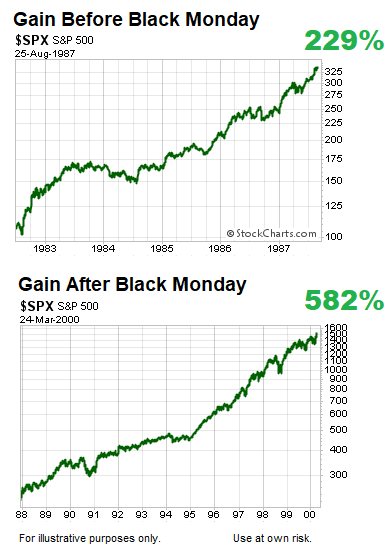The University of Chicago’s Richard Thaler was awarded the Nobel Prize for his pioneering work in behavioral economics. His work aligns with many of the common investor missteps covered in CCM videos in recent months. Morningstar/MarketWatch pointed out how Professor Thaler’s work can assist us in a world where new information is available 24/7/365:
Unfortunately, our increasing sophistication has brought with it an additional unfortunate consequence: a tendency to be too conservative. This is where Professor Thaler’s research has been so revealing. He showed that investors become increasingly risk-averse the more closely they follow the market and their portfolios’ value. I need not point out how easy it now is to track the daily — if not hourly — gyrations in both the overall market and our individual portfolios as well. Unless we’re careful, therefore, one effect will be that we have become more conservative — not just when we think a bear market is imminent, but on average over time. And that would be costly, since it means we’ll earn a far lower rate of return than we would have otherwise.
ETFs And Algorithms Contribute To Short-Term Fears
If you follow the financial markets, at some point you have come across these common and fear-inducing statements:
- Passive investing and ETFs have changed the market’s risk profile.
- Algorithms and computer-based trading have changed the market’s risk profile.
This week’s video water tests the statements above by exploring the history of computerized trading and passive investing.
The Perils Of Myopic Loss Aversion
Watching the market tick-by-tick and/or checking our account balances frequently brings our natural defense mechanisms to the forefront, which can lead to placing a high priority on avoiding short-term market volatility. From Morningstar/MarketWatch:
The reason for this is a behavior pattern that Professor Thaler called “myopic loss aversion,” which is in turn a combination of two personality traits that almost all of us possess: We hate losses more than we love gains, and, given the chance, we can’t resist looking to see how our investments are doing. As a result, frequently checking our portfolio’s gains or losses is not a benign act; it instead tends to exaggerate our subjective perceptions of risk.
Below is the abstract from a 1997 Thaler paper The Effect Of Myopia and Loss Aversion on Risk Taking:
Myopic loss aversion is the combination of a greater sensitivity to losses than to gains and a tendency to evaluate outcomes frequently. Two implications of myopic loss aversion are tested experimentally. 1. Investors who display myopic loss aversion will be more willing to accept risks if they evaluate their investments less often. 2. If all payoffs are increased enough to eliminate losses, investors will accept more risk. In a task in which investors learn from experience, both predictions are supported. The investors who got the most frequent feedback (and thus the most information) took the least risk and earned the least money.
Taking A Long-Term View Can Help
Investors are constantly bombarded with scary warnings about impending gloom and doom, providing fuel for a short-term, avoid-volatility focus. If we monitor and understand longer-term trends, it becomes easier to focus on the possibility of substantial and satisfying gains occurring over several years. For example, we have all seen the scary 1987 “Black Monday” stock market crash chart, but few of us have seen the two charts below, which show the gains in the S&P 500 before and after the October 1987 plunge.
